A Communique Issued at The One Day Multi Stakeholders Senatorial Town Hall Meeting
Background:
The One Day Multi Stakeholders Senatorial Town Hall Meeting was organized to Discuss and Develop Strategic Mechanisms That Will Ensure the Prioritization of Anti-Corruption, Accountability and Inclusion Reforms by Frontline Political Parties and Candidates Towards 2023 Elections in Imo State.
In Attendance Were Selected Civil Society Organizations (CSOs), Traditional rulers, Youth leaders, President generals, PLWD, Albinism Community, Media, honorable members house of representative/ represented.
The Workshop Featured different power point Presentations from facilitators. In a Welcome Remark by Lilian Ibeh, a staff of Alliances for Africa, she reiterated the need to begin the conversations on ways we can strategically mainstream; in other words, make most people accept as normal social inclusion, transparency, accountability and anti-corruption in the society. Speaking on the objective of the meeting, she said it was to discuss and develop strategic mechanisms that will prioritize social inclusion, transparency, accountability and anticorruption in Imo state.
The background of the project and objective was delivered by the programs manager; Ms. Blessing Duru for Alliances for Africa. According to her, the subject of discussion is key to sustainability plan of the nation and one we cannot do without in a democratic setting.
Increasing Participants understanding and engagement on: Strategic Mechanism towards Prioritization of anti-corruption, accountability and inclusion reforms by 2023 election in Imo State was delivered by the founder CARA foundation: Ms. Nnenanya Eneremadu. In her words, good governance entails efficiency, accountability, equitability, inclusivity, responsiveness and political parties are saddled with the responsibility of producing a leadership that should empower and inspire.
A group work was undertaken by all participants in a bid to Identify Strategic Mechanism that can promote and sustain Anti-corruption, Accountability, transparency, Inclusion reforms, Service Delivery and Citizen’s involvement.
Here are the excerpts from the group presentations:
Strategic mechanism to sustain and promote anti-corruption include:
- Open budget policy
- Cashless policy for public service delivery
- Digitalization if internal revenue collection
- Civil service reform by measuring productivity
- Signing of electoral reform bill into law
For accountability and transparency:
- Sensitization on existing legal framework supporting the subject such as the freedom of information law
- Demand political parties to periodically publish financial report
- Sensitize on budget process and participation
- Tracking budget implementation leveraging
For inclusion reforms
- Enact local laws to encourage women and special citizens to be part of the decision-making processes at the highest
- Enforce 35 % women inclusion in government
- Women support women initiative
- Use religious bodies and clergies to empower women by correcting interpretations of the bible and Gods view on women
For service delivery
- Participatory governance: involving the citizens in determining their needs per time
- Monitor and evaluate the activities of political parties and leaders by CSOs, and the Media
- Periodic referencing to political manifestos through town hall meetings to track projects
For Citizens Involvement
- Power should be taken back from the government by us (the people) to fill the gaps made by the government
- Advocacy for civic education
- Non-violent agitations/protests
- Building capacity/teaching values
- Town hall meetings
- Active participation in politics and governance
Critical re-examination of the challenges in enforcing mechanism for a good Governance System in Imo State was Presented by Ms. Nnennaya Eneremadu. In the contributions made by participants, it was agreed that:
- Poverty
- Culture,
- Lack of political will
- Ignorance
- Poor awareness on discrimination
- Citizen’s apathy
- Negative modelling
- Lack of funding
- Divide and rule tactics
- Lack of capacity
*Observations*
The participants took their position on the following issues:
- Democratic setting can never be achieved if individuals singlehandedly fund political parties because they will control the affairs in their favor
- There is lack of a workable system/infrastructure in party settings
- How can we make the extant legal frameworks work for us since it will require a huge amount of time to amend?
- Individuals in parties do not contribute financially to the maintenance of the party
- Poverty leads to foolhardiness and remains the biggest challenge towards actualization of project objective
- Impunity has become the norm
*Recommendations*
After Much Discussions and Deliberations, The Participants Made the Following Recommendations:
- The 1999 constitution should be done away with because it is does not address the current challenges of the citizenry
- We need to go back to the drawing board and redesign the electoral act
- The citizens should be made to drive the change and process of good governance
- Political parties funding sources should be disclosed
- Annual statement of account should be submitted to INEC according to the provisions of the law
- Political parties should undertake continuous civic education
- Accountability and access to information should be promoted
- Citizens should be empowered to hold government accountable through civic education
- Immunity clause for government officials should be removed
- Autonomy of the judiciary
- Power should be taken back from the government by the People
The Concluding Component of the Meeting was the reading of the communique by Lilian Ibeh.
Signed
Imo People’s Action for Democracy (IPAD)
Citizens Center for Integrated Development and Social Rights (CCIDESOR)
Center for Peace Across Borders (CePAB)
Spaces for Change (S4C)
Alliances for Africa (AfA)
And Others.

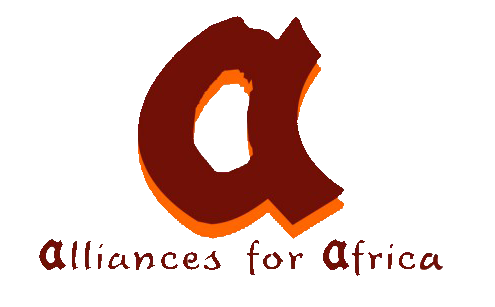
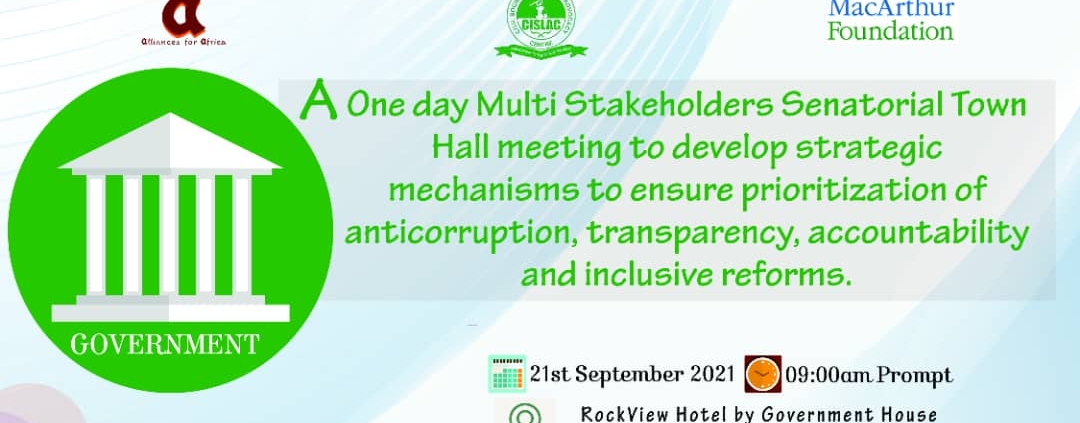
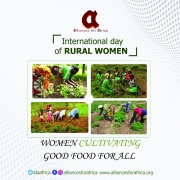
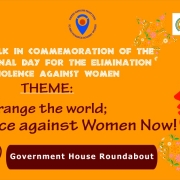
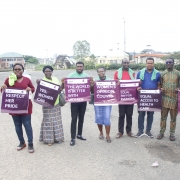
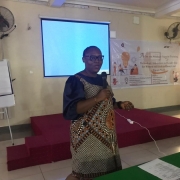
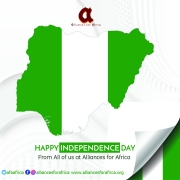
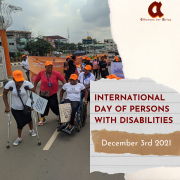


Leave a Reply
Want to join the discussion?Feel free to contribute!